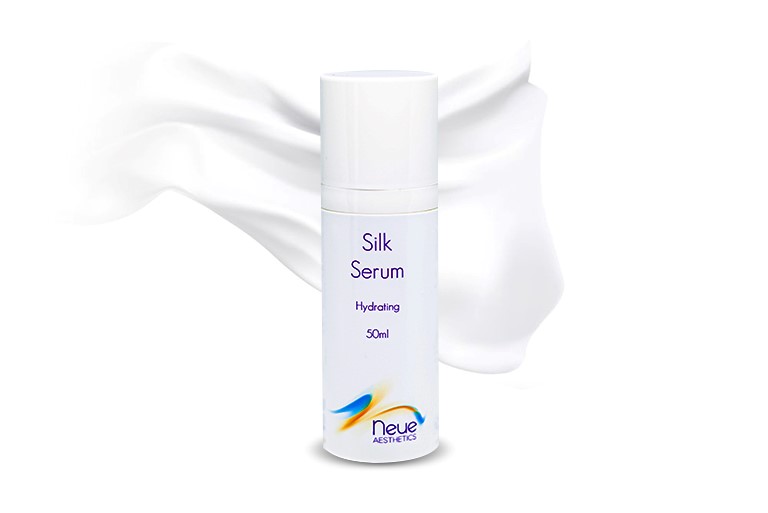What is aging and mature skin?
Over time, the ability of the sebaceous glands to produce oil slows down, often leading to skin dryness, wrinkles, fine lines, flakiness and other imperfections. Even if you had perfect skin, no one is immune to the skin changes brought about by aging. The first thing you may notice as your skin matures is that it is not that firm anymore. This is because your skin loses both collagen, which makes the skin firm and plump, and elastin, which gives skin strength and allows it to stretch.[1] Exposure to free radicals and UV rays from the sun can damage collagen and elastin, which causes your skin to sag and make you look old. This skin type is referred to as ageing mature skin. Another characteristic of this skin type is that it is generally associated with thinning of the skin, fine lines around the lips and eyes with deeper lines around the mouth and forehead, eye bags, darker circles and skin dryness.[2]
As you age, the skin may not regenerate new and healthy cells easily, and dead skin cells do not shed quickly.[3] This causes your skin to appear dull and rough. As the epidermis flattens, the skin also becomes more fragile and transparent, and it can bruise more easily. Other bodily changes brought by aging can also affect the skin appearance. Normally, fat loss can cause facial skin to sag or to appear more sunken – the same effect as a maturing skin.
There are several problems that people with ageing and mature skin can encounter. Because the sweat glands deplete with age, the skin loses most of its natural moisture resulting in a dull appearance which finally starts to itch and burn. Another problem is hyperpigmentation, especially in those persons with a history of prolonged sun exposure. While it is important to meet the daily needs of mature skin, it is necessary to keep in mind that not all elderly experience these skin problems.
What can cause early aging or maturing of the skin?
Chronological age and biological age are two different things. The process of aging is only remotely connected to your true age. Your physical appearance is sometimes an indicator of your biological age, which sometimes can be deceptive, especially if you have mature skin. Our genes are mainly responsible for maturation of the skin. The medical term for this type of aging is called “intrinsic aging”. There are different causes of mature skin for each individual. Early or premature aging is related to a variety of factors such as the following:
Sun exposure
UV rays from the sun can destroy the elastic-like fibres in the skin, which causes it to sag and lose its elasticity.[4] Over time, the sagging skin gets pulled by gravity resulting in a droopy appearance.
Smoking
The nicotine in cigarettes accelerates aging by decreasing collagen synthesis.[5] If the production of collagen (protein that makes your skin firm and plump) is delayed and its amount decreases, your skin can sag and may look old.
Diet
A diet rich in sugar and other refined carbohydrates accelerates aging through a process called glycation – a process in which blood sugar molecules and fat molecules interacts with protein molecules and damage the protein.[6] Wrinkling of the skin is one example of what this process can do. Also, frequent alcohol consumption can accelerate aging as it depletes the body’s nutrients.[7]
Wrong use of skin-care products
Lotions, hair oil or cream containing refined oil or petroleum waste can accelerate skin aging.[8]
Lack of sleep and stress
Sleep deprivation together with stress increases serum concentrations of pro-inflammatory cytokines which can accelerate the aging process.[9]
Medications
Drugs used to treat cholesterol such as statins can speed up the process of aging.[10]
Chronic illness
An underlying medical condition such as progeria can cause premature aging of the skin.
The anti-ageing treatment for mature skin?
Different skin-care regimens may be necessary in individuals of the same age according to their skin type. New treatments and less-invasive procedures for mature skin, to reduce wrinkles and improve one’s complexion are available in the market today. But even people who already display signs of mature skin can still benefit from making lifestyle modifications.
To treat mature skin:
Use moisturisers fortified with vitamins and minerals
Choose rich creams that provide oil and attract skin moisture. Also, choose products that incorporate age-fighting ingredients such as vitamin A (retinols), vitamin C, kinetin, copper and coenzyme Q10.[12] which are all available in Neue’s moisturisers and serums. Our Nourish night cream deeply penetrates to aid in the protection of ageing skin by encouraging increased cell turnover, boosting hydration and protecting from external damaging factors. Also provides nourishment to promote a healthy youthful glow.
Limit and protect yourself from too much sun exposure
Sunlight can destroy the elastic-like fibres in the skin, if you are exposed for too long. Use long sleeves, hats, pants and other protective clothing when going out in hotter months. Also, use a sunscreen with SPF 30to block UV rays that may penetrate your skin.
Use anti-aging Serums
Free radicals or harmful molecules in the environment are one of the factors that can accelerate aging by destroying cells in the body, potentially leading to different diseases. Fortunately, compounds called anti-oxidants can help neutralize free radicals and can delay the effects of aging.[13] Choose serums fortified with anti-oxidants such as retinols, vitamin E, vitamin C and resveratrol such as Neue’s Orange Stem Cell and Silk Serums.

Make lifestyle modifications
To delay the effects of aging and prevent worsening of mature skin, avoid factors that can further contribute to this such as stress, smoking, diet rich in sugar and other refined carbohydrates and sleep deprivation.
In clinic treatments
C.I.T (Collagen Induction Therapy) Neue Pen’s fractional micro delivery system provides unparalleled delivery system of needles, able to cause micro channels into the epidermis and dermis. These micro channels encourage and harnesses the power of the body’s ability to re-grow and repair the skin through the normal physiology of skin. This then results in tissue re-modelling where the skins vascular matrix matures and the skin tightens because new collagen is created.
Neue’s Nano Infusion disc is a tiny tip full of micro needles that are hardly visible to the naked eye. When this disc is applied to the skin it pushes the serums painlessly into the skin. Trans-epidermal infusion penetrates the skin at 80 microns, thinner than a human hair and the thickness of the epidermis. During the Neue’s Nano Infusion technique the skin is coated with a customized Neue serum prior to treatment, so the active ingredients are continuously pushed into the skin. A slight erythema attributes to a successful application. Neue’s Nano Infusion results in a painless, effective treatment with no need for aesthetic and the client experiences no “down time”.
Both of these treatment teamed with Radio Frequency will not only stimulate collagen synthesis but tighten the skin all in one treatment.

